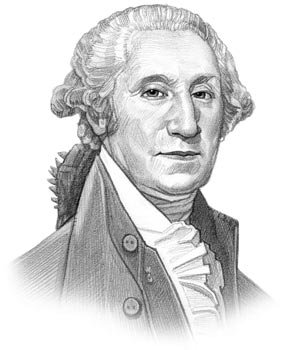
Summary of Constitutional Amendments 1 - 10 (Bill of Rights)
1st Amendment
The first amendment details Freedom of Religion, the Freedom of the Press and Freedom of Expression in the Constitution.
2nd Amendment
The second amendment details the right to keep a weapon and use it to protect themselves.
3rd Amendment
The third amendment details relates to the early Quartering Act with a summary stating that soldiers cannot take, or live, in a person's house without permission of the owner.
4th Amendment
The fourth amendment details that a person or their property cannot be searched unless there is "probable cause" that a crime has been committed.
5th Amendment
The fifth amendment details the need for 'due process of the law' before punishing a person and the right to a trial by jury as detailed in the Constitution.
6th Amendment
The sixth amendment details the right to a fair Trial and covering the subject of Witnesses
7th Amendment
The seventh amendment details trial by Jury in Civil Cases & the rights of those being sued
8th Amendment
The eighth amendment details limitations on imposing excessive bail, excessive fines, or any cruel and unusual punishments
9th Amendment
The ninth amendment states that the Constitutional Amendments does not include all of the rights of the people and the states.
10th Amendment
The tenth amendment states that any powers that the Constitution does not give to the US government, belong to the individual states and the people
Summary of Constitutional Amendments 1 - 10 (Bill of Rights)
Constitutional Amendments: Constitutional Amendments 11 - 27
The links provide access to interesting, detailed articles that explain the meanings of each of the constitutional amendments numbered 11-27 together with a short, simplified summary of what these constitutional amendments actually mean. The simplified summaries of the constitutional amendments 11 - 27 provide easy, simple information for kids, schools and homework. The historical time period and presidencies when each of the Constitutional Amendments 11 - 27 were approved by Congress (ratified) is also explained, putting all of the Constitutional Amendments into the correct time period.
Constitutional Amendments - Amendments 11-27
11th Amendment
The 11th Amendment was made in 1795 during the presidency of George Washington stating that citizens cannot sue states in federal courts
12th Amendment
The 12th Amendment was made in 1804 that changed Presidential election rules in the Constitution.
13th Amendment
The 13th Amendment was ratified in 1865 ending slavery in the United States.
14th Amendment
The 14th Amendment was ratified in 1868 stating that every person born in the US is a citizen. States must follow due process of law before taking away any citizen's rights or property.
15th Amendment
The 15th Amendment was ratified in 1870 stating that a citizen's right to vote cannot be taken away because of race, the color of their skin, or because they were previously slaves.
16th Amendment
The sixteenth Amendment to the Constitution was ratified in 1913 authorizing Congress to collect income taxes.
17th Amendment
The seventeenth Amendment was ratified in 1913 stating that people will elect Senators. Before this, Senators were elected by state legislatures.
18th Amendment
The eighteenth Amendment was passed in 1919 banning the sale, production, importation, and transportation of alcohol across the nation. The Prohibition era lasted from 1920 - 1933.
19th Amendment
The nineteenth Amendment was passed in 1920 which guaranteed women the right to vote.
20th Amendment
The twentieth Amendment was ratified in 1933 that changed the days for meetings of Congress and for the start of the President's term of office.
21st Amendment
The twenty-first Amendment to the Constitution repealed (overturned) Prohibition in 1933.
22nd Amendment
The twenty-second Amendment was made to in 1951 stating that a person may not be elected President more than twice.
23rd Amendment
The twenty-third Amendment was made in 1961 giving the people in the District of Columbia the right to vote for President.
24th Amendment
The twenty-fourth Amendment was made in 1964 making it illegal to make anyone pay a tax to have the right to vote.
25th Amendment
The twenty-fifth Amendment was made in 1964 changing what happens if a President or Vice President dies, resigns, or is not able to do the job.
26th Amendment
The twenty-sixth Amendment to the Constitution was ratified in 1971 giving 18-year-olds the right to vote.
27th Amendment
The twenty-seventh Amendment was made in 1992, limiting how Congress can increase how much its members are paid.
Constitutional Amendments - Amendments 11-27
Nice article! Keep on! I actually read it :D
Upvoteforupvote!!
Downvoting a post can decrease pending rewards and make it less visible. Common reasons:
Submit
I hope you upvote my post as well
https://steemit.com/@rafalklimsiak
#upvoteforupvote
Downvoting a post can decrease pending rewards and make it less visible. Common reasons:
Submit